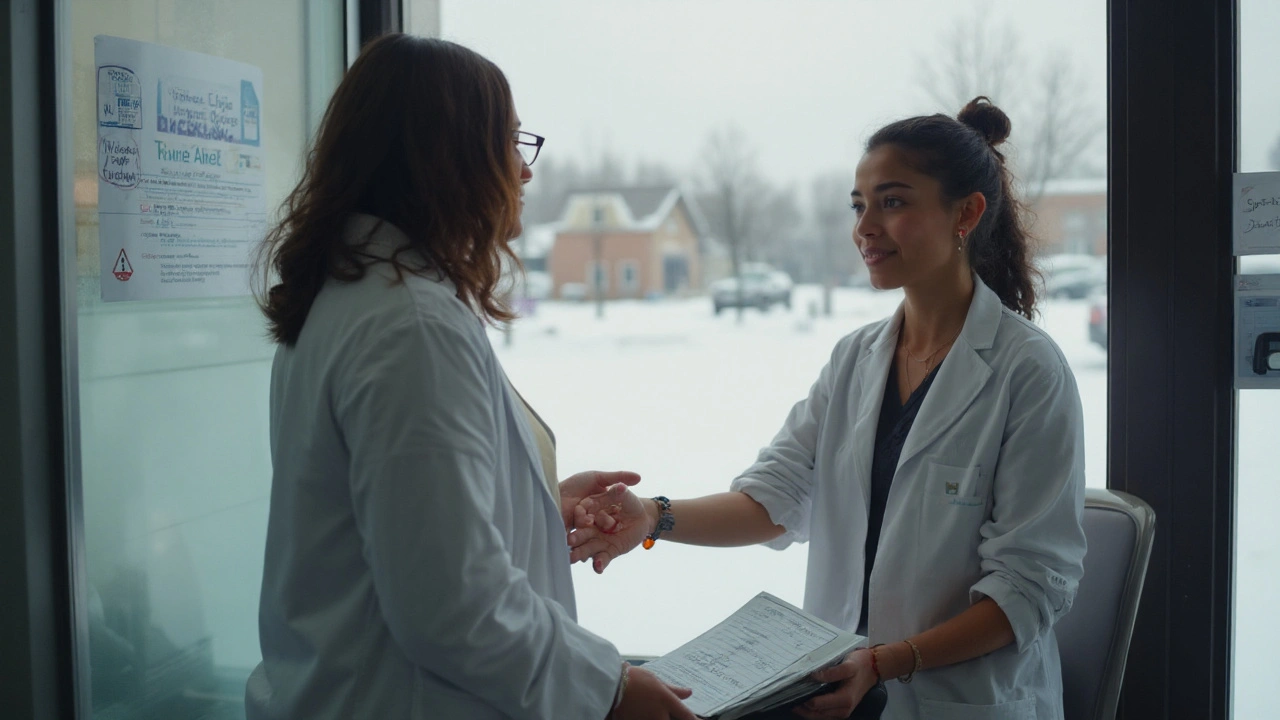Early Detection – Catch Health Issues Before They Grow
Think about a small leak in a pipe. If you fix it right away, you avoid a flood. The same idea works for health. Finding a problem early often means an easier, cheaper, and more successful treatment.
Common Early Detection Tests
Doctors recommend a handful of routine checks that catch many serious conditions. A blood pressure reading tells you if your heart is under strain. A simple blood test can reveal high cholesterol, diabetes risk, or anemia before you feel any symptoms.
For cancers, screenings are the most powerful tools. A mammogram for women over 40 spots breast cancer when it’s still confined to the tissue. Colonoscopies or stool‑based tests find colon cancer early enough to remove polyps before they turn malignant. Prostate‑specific antigen (PSA) tests and skin exams help catch prostate and skin cancers at a treatable stage.
Even a quick eye exam can reveal diabetes or high blood pressure because these conditions affect blood vessels in the retina. Hearing tests, eye checks, and dental cleanings act as health barometers, flagging issues you might not notice.
Simple Ways to Make Early Detection Part of Your Life
First, set a reminder. Mark the calendar for annual check‑ups, and keep a list of recommended tests based on your age, gender, and family history. Most clinics offer online portals where you can schedule appointments with a few clicks.
Second, listen to your body. Persistent fatigue, unexplained weight loss, or a new lump deserve a doctor’s look, even if they seem minor. Write down what you notice and share it at your next visit.
Third, keep your records organized. Having a personal health folder—paper or digital—makes it easy to show doctors past results, medication lists, and vaccination dates. This speeds up the diagnostic process.
Fourth, involve a partner or friend. A buddy can remind you of appointments and encourage you to stay on track. Sometimes an extra set of eyes catches a symptom you missed.
Finally, stay informed but skeptical. Health blogs can be helpful, but always verify advice with a qualified professional. If a new test or supplement sounds too good to be true, ask your doctor for the evidence.
Early detection isn’t a one‑time event; it’s a habit. By adding a few simple actions—regular screenings, paying attention to changes, keeping records—you give yourself the best chance to catch problems when they’re most manageable. Start today: schedule that overdue blood work or ask your doctor which screen you might need next. Your future self will thank you.
Early Detection in Ph-Positive ALL: Signs, Tests, and Survival
Early detection in Ph-positive ALL can double survival odds. Learn the red flags, the exact tests to ask for, and how faster diagnosis shapes treatment.
